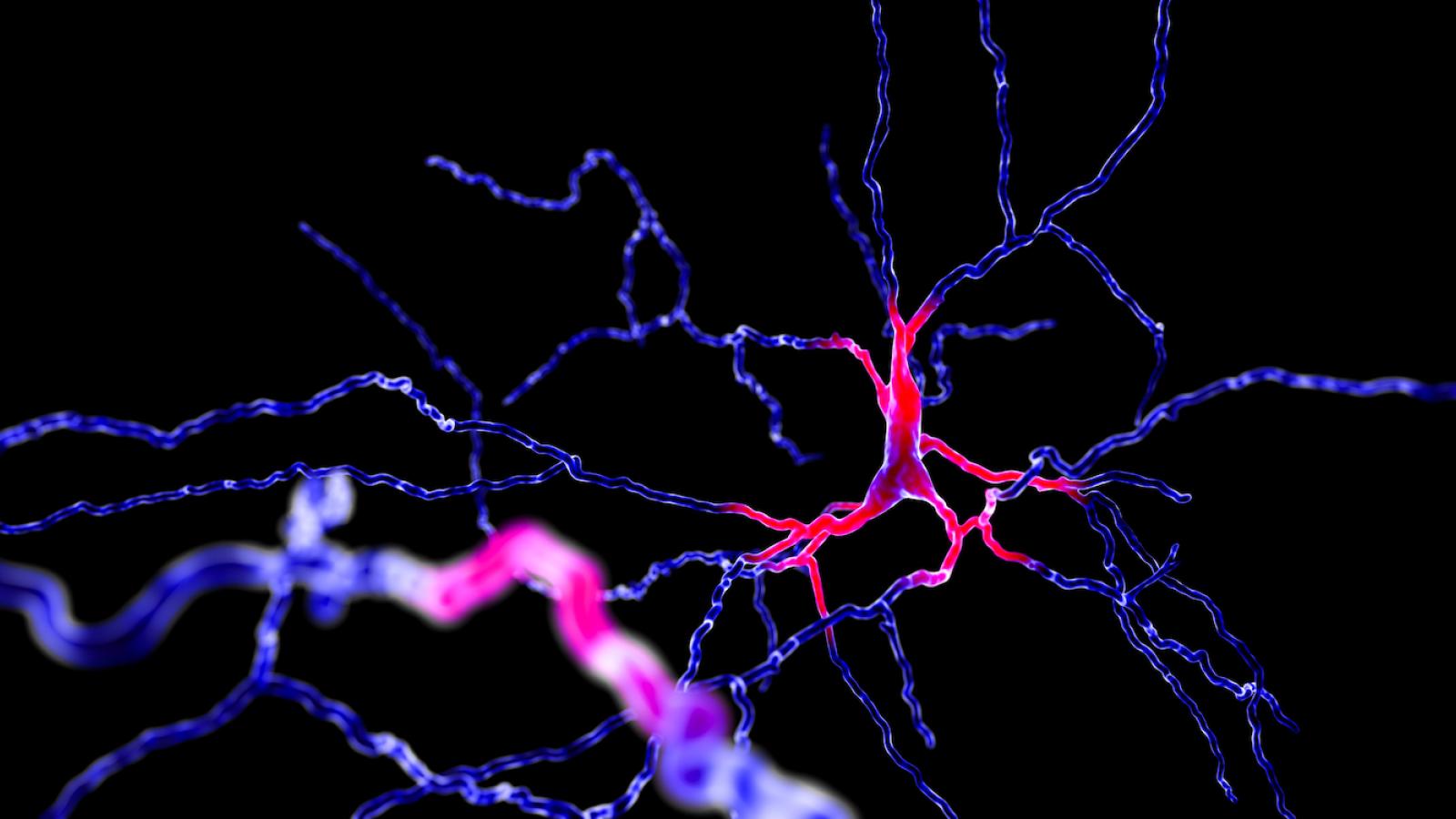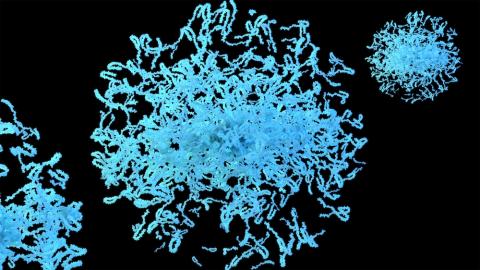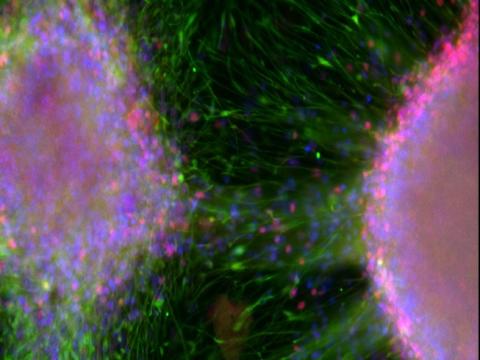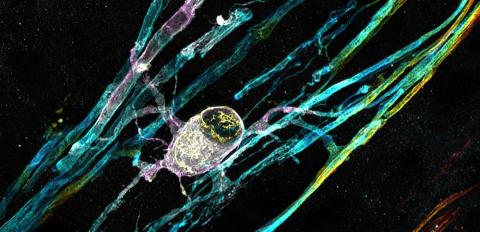Parkinson’s is a progressive neurodegenerative condition characterised by selective loss of dopaminergic neurons in the substantia nigra and the presence of intraneuronal inclusions, called Lewy bodies, which are primarily composed of misfolded alpha-synuclein. Symptoms can include both motor symptoms such as resting tremor, bradykinesia and rigidity, as well as non-motor symptoms such as pain, thinking and memory problems, and mental health issues. Parkinson's is thought to be caused by a complex interplay of ageing, genetic, and environmental factors.
The UK DRI brings together a diverse range of expertise to explore key questions in the Parkinson's field. Our research ranges from a molecular and cell biology perspective, developing and utilising state-of-the-art disease models, through to translational studies identifying digital, imaging, and blood biomarkers. Network members leverage innovative technologies including spatial transcriptomics, proteomics, and environmental sensing in the home to address critical challenges in understanding, diagnosing and treating Parkinson's and related synucleinopathies.
The key priorities of the Parkinson's thematic network include:
- Elucidating specific vulnerability of cell types
- Protein structure, protein misfolding and proteostasis
- Mechanisms of alpha-synuclein spread and the gut-brain-axis
- Genetic and epigenetic contributions towards disease
- Biomarker discovery
- Neuronal circuitry
- Utilising cutting-edge model systems e.g. stem cell models
Lightsheet microscopy of a whole cleared mouse brain stained for alpha-synuclein tagged with GFP expressed under the endogenous synuclein promotor (Knock-In mouse model generously provided by Kelvin Luk). Credit: James Conway, Bartels lab






